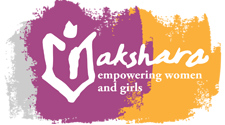What Does Gender Equality Mean for Youth?
They will soon be the largest group not only in India but the world.
By the 2030s, the group of 29 year olds is expected to grow and peak to 490 million.
They form a unique segment of society with better education, health, more mobile, at ease with technology and carry little or no memories of the Partition, the fight for Independence or the pre Globalization and Internet.
What do they believe gender equality is? We hear of young people observing old traditions like Karva Chauth fasting and also opt for live in partners. How do they navigate between the new and old, the traditional and modern, the local and the global? Does tradition in some cases clash with the modern and what does it mean to youth in the context of gender equality?
We set out to find out some answers. We launched a survey involving 6428 young men and women across 8 cities in 8 states of India.
Gender equality “means that women and men, and girls and boys, enjoy the same rights, resources, opportunities and protections”
It is a comprehensive concept stringing together several rights so we decided on exploring some important facets like social discrimination, violence, labour, sexuality and alternative sexuality.
The Survey had 41 questions on a 5 point Likert Scale as well as 24 practice and awareness questions.
Our aim was to measure the acceptance of gender equality of urban youth and understand their
gender beliefs.
We compiled an Index or Score Card which is a numerical value assigned to each respondent by collating their responses on multiple statements.
Youth’s Overall Index was 62.21
Women were higher at 68.61 and Men were at 56.39
Women scored well in the domains of Social Discrimination, Work, and Violence. Women’s lowest score was in Masculinity. Men fall 12.22 points behind women but had a good score for Social Discrimination and Sexuality. Both men and women had the lowest score in Alternative Sexuality.
To know more about how youth responded to questions, do read our report called Big Small Steps: what youth think of gender equality by Aksharacentre
Public Release of Big Small Steps: A report
There were 240 people from the media, women’s groups and others at the public launch. It began with Actor Rahul Bose contextualising the survey and highlighting the importance of understanding and believing in gender equality.
There were three stand up comedians which gave a funny spin to youth’s beliefs and actions on gender.
Lastly the Co Directors presented a detailed breakup of the data in a powerpoint presentation.




